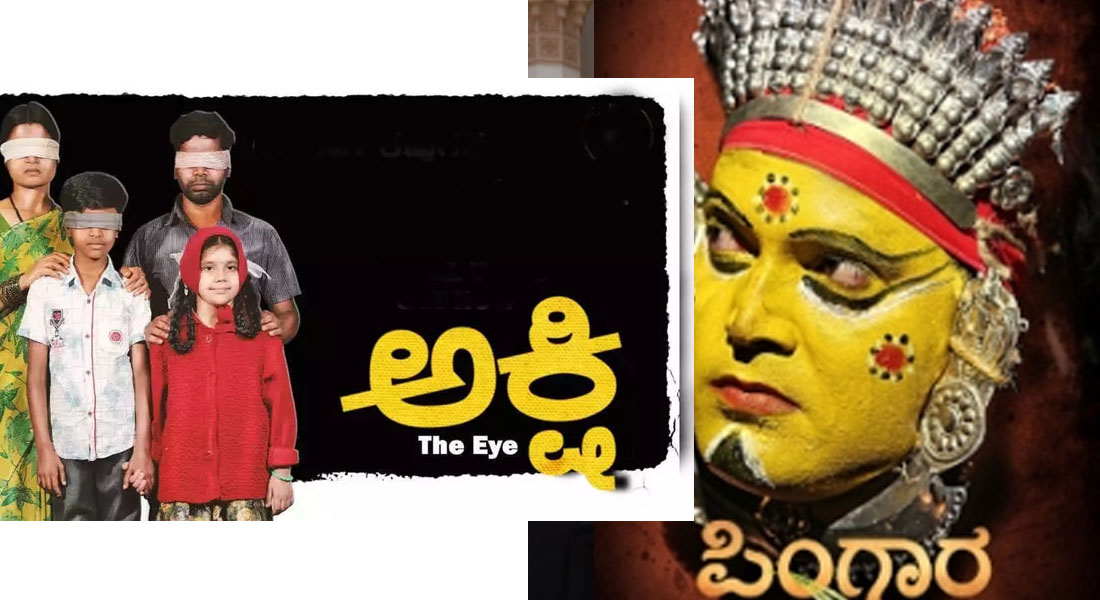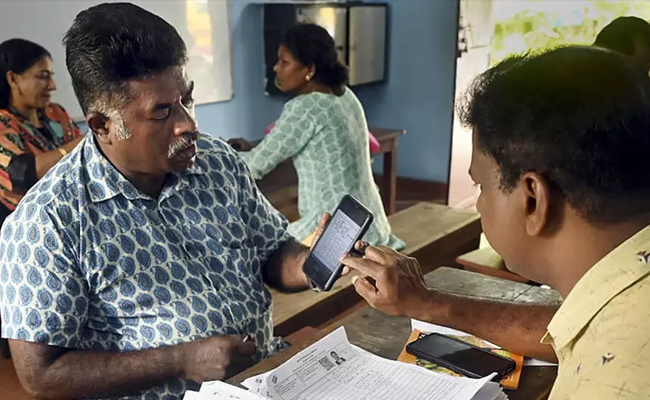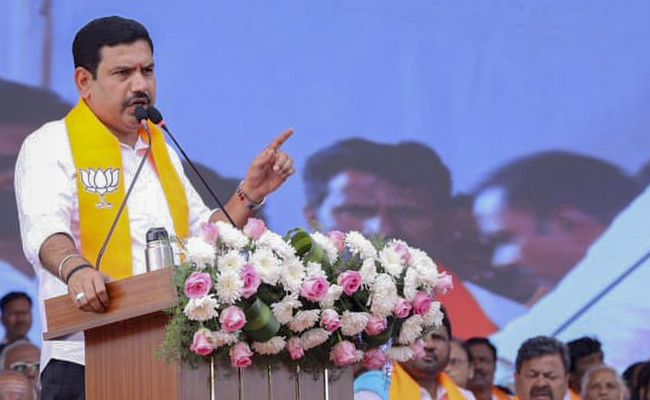New Delhi, Mar 22 : Filmmaker Priyadarshan's "Marakkar: Arabikadalinte Simham" was named the best film, while Bollywood actors Kangana Ranaut, Manoj Bajpayee and Dhanush were declared best actors at the 67th National Film Awards, announced here on Monday.
While Ranaut won the best actress award for her performances in "Manikarnika" and "Panga", Bajpayee was named best actor for Devashish Makhija's "Bhonsle". The actor shared the honour with Dhanush, who earned the honour for "Asuran".
Here is the complete list of winners of the 67th National Film Awards:
Feature Film Awards: Best Feature Film: 'Marakkar: Arabikkadalinte Simham" (Malyalam) Best Popular Film Providing Wholesome Entertainment: "Maharshi" (Telugu) Best Director: Sanjay Puran Singh Chauhan for "Bahattar Hoorain" (Hindi) Best Hindi Film: "Chhichhore" Best Actor (shared): Manoj Bajpayee for "Bhonsle" (Hindi), and Dhanush for "Asuran"(Tamil) Best Actress: Kangana Ranaut for "Manikarnika: The Queen of Jhansi (Hindi) and "Panga" (Hindi) Best Supporting Actor: Vijaya Sethupathi for "Super Deluxe" (Tamil) Best Supporting Actress: Pallavi Joshi for "The Tashkent Files" (Hindi) Best Screenplay (Original): Kaushik Ganguly for "Jyeshthoputro" (Bengali) Best Screenplay (Adapted): Srijit Mukherji for "Gumnaami" (Bengali) Best Screenplay (Dialogue Writer): Vivek Ranjan Agnihotri "The Tashkent Files" (Hindi) Best Music Direction: D Imman for "Viswasam" (Tamil) Best Background Music: Prabuddha Banerjee for "Jyeshthoputro" (Bengali) Best Lyrics: Prabha Varma for "Arodum Parayuka Vayya", "Kolaambi" (Malayalam) Best Male Playback Singer: B Praak for "Teri Mitti", "Kesari" (Hindi) Best Female Playback Singer: Savani Ravindra, for "Raan Petala", "Bardo" (Marathi) Best Choreography: Raju Sundaram for "Maharishi" (Telugu) Best Cinematography: Gireesh Gangadharan for "Jallikattu" (Malayalam) Best Editing: Navin Nooli for "Jersey" (Telugu) Special Jury Award: "Oththa Seruppu Size 7" (Tamil) Best Children's Film: "Kastoori" (Hindi) Best Child Artist: Naga Vishal for "Kruppu Durai" (Tamil) Best Production Design: Sunil Nigwekar and Nilesh Wagh for "Anandi Gopal" (Marathi) Best Costume Designer: Sujith Sudhakaran and V Sai for "Marakkar: Arabikkadalinte Simham" (Malyalam) Best Make-up Artist: Ranjith for "Helen" (Malayalam) Best Special Effects: Siddharth Priyadarshan for "Marakkar: Arabikkadalinte Simham" (Malyalam) Best Action Direction: Vikram Mor for "Avane Srimannarayana" (Kannada) Best Audiography (Location Sound Recordist): Debajit Gayan for "Iewduh" (Khasi) Best Audiography (Re-recordist of the final mixed track): Resul Pookutty for "Oththa Seruppu Size 7" (Tamil) Best Audiography (Sound Designer) : Mandar Kamalapurkar for "Trijya" (Marathi)
Nargis Dutt Award for Best Feature Film on National Integration : "Tajmahal" (Marathi) Best Film on Social Issues: "Anandi Gopal" (Marathi) Indira Gandhi Award for Best Debut Film of a Director: Mathukutty Xavier for "Helen" (Malayalam) Best Film on Environment Conservation/ Preservation: "Water Burial" (Monpa) Best Bengali Film: "Gumnaami" Best Tamil Film: "Asuran" Best Telugu Film: "Jersey" Best Marathi Film: "Bardo" Best Malayalam Film: "Kala Nottam" Best Assamese Film: "Ronuwa- Who Never Surrender" Best Manipuri Film: "Eigi Kona" Best Kannada Film: "Akshi" Best Konkani Film: "Kaajro" Best Odia Film (shared): "Sala Budhar Badla" and "Kalira Atita" Best Punjabi Film: "Rab Da Radio 2" Best Haryanvi Film: "Chhoriyan Chhoron Se Kam Nahi Hoti" Best Chhattisgarhi Film: "Bhulan The Maze" Best Khasi Film: "Iewduh" Best Mishing Film: "Anu Ruwad" Best Paniya Film: "Kenjira" Best Tulu Film: "Pingara" Special Mention (Director): Sajin Babu for "Biryani" (Malayalam), Abhijeet Mohan Warang for "Picaso" (Marathi) Special Mention (Actor): Benjamin Daimary for "Jonaki Porua" (Assamese) Special Mention (Actress): Lata Kare for "Lata Bhagwan Kare" (Marathi)
Non-Feature Film Awards:
Best Non-Feature Film: An Engineered Dream (Hindi) Best Biographical Film: "Elephants Do Remember" Best Ethnographic Film: "Charan-Atva" Best Environment Film: "The Stork Saviours" Best Promotional film: "The Shower" Best Debut Non-Feature Film: "Khisa"
Best Explorative Film: "Wild Karnataka" Best Narration: "Wild Karnataka" (David Attenborough)
Audiography (musical): "Radha" On Location Sound Recordist: "Rahas"
Best Cinematography: "Sonsi"
Best Direction: "Knock Knock Knock" Best Film on Family Values: "Oruu Pathira" Best Short Fiction: "Custody" Special Jury Award: "Small Scale Values".
Best Animation: "Radha" Best Investigative Film: "Jakkal" Best Education Film: "Apples and Oranges" Best Film on Social Issues: "Holy Rites" and "Ladli".
Let the Truth be known. If you read VB and like VB, please be a VB Supporter and Help us deliver the Truth to one and all.
Bengaluru (PTI): The Karnataka Electricity Regulatory Commission has reduced electricity tariffs for agricultural pump sets for 2025–26 from the earlier uniform rate of Rs 8.30 per unit to a range of Rs 6.57 to Rs 7.79 per unit across the state.
However, the Commission has increased tariffs for select commercial and industrial consumers by 10 paise to a maximum of 95 paise per unit.
As per the Commission’s order, the revised tariffs are as follows: LT-3a (low-tension commercial) consumers will pay a fixed charge of Rs 235 per kW and an energy charge of Rs 7.10 per unit, while LT-5 (industrial) consumers will be charged Rs 165 per HP as fixed charges and Rs 5.20 per unit as energy charges.
In the high-tension segment, HT-2a (industrial) consumers will pay a demand charge of Rs 365 per kVA and an energy charge of Rs 6.70 per unit, while HT-2b (commercial) consumers will pay Rs 390 per kVA as demand charges and Rs 6.90 per unit as energy charges.
The revised tariffs were notified in an order issued on March 3 after the Commission allowed a review petition filed by five state-run electricity supply companies—Bangalore Electricity Supply Company, Mangalore Electricity Supply Company, Chamundeshwari Electricity Supply Corporation, Hubli Electricity Supply Company and Gulbarga Electricity Supply Company.
The order, however, does not specify the date from which the revised tariffs will come into effect.
In its earlier tariff order dated March 27, 2025, the Commission had fixed the LT-4a tariff uniformly at Rs 8.30 per unit across all ESCOMs.
Consumers in the LT-4a category — primarily agricultural pump set users — are provided free power supply, with the state government reimbursing the cost through subsidies.
According to the order, the petitioners informed the Commission that despite the Government of Karnataka allocating Rs 16,021 crore towards subsidies for free power supply to LT-4a consumers, the ESCOMs would not be able to fully recover the cost of electricity supplied under the earlier tariff structure.
The Commission noted that this would leave distribution companies with no option but to demand payment of the balance amount from farmers, leading to “unexpected and undue hardship” for the agricultural community, which it described as the backbone of the state’s agricultural production.
The reduction in the LT-4a tariff would, however, result in a revenue shortfall of Rs 2,362.47 crore compared to the tariffs considered in the order under review.
Observing that it was necessary to safeguard farmers’ interests while ensuring that ESCOMs reasonably recover costs, the Commission said the review petition could be allowed under the provisions of the Code of Civil Procedure, 1908.
The petitioners informed the Commission that the Government of Karnataka has allocated an additional Rs 2,362.47 crore, supplementing the existing budgetary provision of Rs 16,021 crore, recognising that the entire financial burden should not be passed on to consumers and must be partially borne by the government.
The petitioners further stated that they will mobilise Rs 1,107.60 crore through miscellaneous revenue.
“The balance shortfall to be met by increasing tariffs for industrial and commercial consumers, amounting to Rs 1,254.88 crore, appears reasonable and justifiable,” the Commission added.





